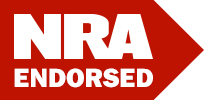We've often written in these pages that elections matter. But often, it's too easy to look at that statement in the abstract--in terms of inside-the-Beltway political maneuvering and media spin. And that makes it too easy to forget that the outcome of elections affects the freedom - and the lives - of real Americans. This month, I'm going to tell you about one of those Americans.
No issue is more mainstream than exercising and protecting the freedoms that make America unique in the history of the world.
Meet Andres Vegas. Vegas, age 46, is an honest, hard-working American. And on Jan. 4, 2007, he became a criminal defendant.
That night, Vegas was doing a dangerous job, but it's not one you'll see highlighted on cable TV. He wasn't hunting terrorists in the streets of Baghdad, fighting wildfires in the mountains of Idaho or trapping crabs in the icy waters of Alaska. In January, Andres Vegas was delivering pizzas in Milwaukee.
Vegas knew this was dangerous work. In March 2005, he was robbed. He began carrying a gun--the kind of affordable pocket pistol that gun-ban activists demonize as a "junk gun." And in July 2006, he needed it. Two masked men tried to rob Vegas, and he drew his gun and fired in self-defense, wounding an assailant and ending the attack.
After the attack, the district attorney declined to prosecute Vegas for his act of self-defense--but the DA's office did send him a letter to warn him about the legal risks of carrying a gun.
They sent him this letter because Wisconsin is one of only two states in the country that still prohibit carrying a firearm for lawful self-defense. The Wisconsin legislature has passed a Right-to-Carry bill twice to change that. Each time, anti-gun Gov. Jim Doyle has vetoed the bill, and the legislature has narrowly failed to override the veto. A change in the governor's mansion, or in just one or two seats of the state legislature, would have changed Wisconsin's law--and Andres Vegas' life.
Vegas was attacked again after getting the DA's letter. In September 2006, three men robbed him, beat him and pepper sprayed him. He tried to run, and was punched and kicked again. This time, following the DA's advice, he was unarmed.
You might think that would be enough for anyone, but Vegas needed the work and refused to give in to Milwaukee's street thugs.
That brings us to January of this year. Vegas arrived at a customer's address and--as an added precaution against ambush--called the customer to come outside for the pizza. But when Vegas got out of his car, he was approached--once again--by two armed robbers. This time, Vegas fought back. He deflected one robber's gun from his face, then drew his own pistol and shot an attacker in the hip. The robbers ran, dropping a gun. Vegas secured that gun and his own, and called the police.
This time, the Milwaukee DA's office didn't respect Vegas' decision to defend himself. Although the self-defense issue was clear, they charged him with carrying a concealed firearm.
But as we've seen, Andres Vegas isn't one to go down without a fight. With the able assistance of Milwaukee lawyer Craig Mastantuono--and, I'm proud to say, help from NRA-ILA's Office of Legislative Counsel--Vegas moved to dismiss the concealed carry charge.
Here's where another election comes in. Less than a decade ago, in November 1998, Wisconsin voters--by a 3-1 margin--approved an amendment to the state constitution, making clear that the people of Wisconsin "have the right to keep and bear arms for security, defense, hunting, recreation or any other lawful purpose."
Based on that provision, the Wisconsin Supreme Court held in a 2003 case that a person could raise a constitutional defense against a concealed carry charge if the defendant's "interest in concealing the weapon to facilitate exercise of his or her right to keep and bear arms substantially outweigh[s] the State's interest in enforcing the concealed weapons statute," and that "concealment was the only reasonable means under the circumstances to exercise his or her right to bear arms."
That's a tough standard, and leaves Wisconsin citizens wondering where they stand. Frankly, there's no way to know in advance how your "interests" will weigh in the scales of justice. All a Wisconsin resident can do is roll the dice on the streets.
That's what Andres Vegas did in January, and on Sept. 24--more than eight months after the attack--Judge Daniel A. Noonan of the Milwaukee County Circuit Court dismissed the charge against Vegas. In a forceful opinion, Judge Noonan said Vegas had "demonstrated the requisite extraordinary circumstances" to justify carrying a concealed handgun. In fact, given the high crime area Vegas works in, the three previous attacks and Vegas' lawful purchase of the handgun for protection, Judge Noonan said he was "not convinced that there are any reasonable alternatives that would have secured Vegas' safety."
Where does this leave other Wisconsin residents? Unfortunately, because the court's decision only applies directly to Vegas, it will leave many still guessing. What jobs are dangerous enough to justify carrying a handgun? How many times does a person need to be attacked before the government will recognize his or her right to self-protection? And does a citizen need to risk arrest to answer these questions?
While the decision is a step forward that may help persuade more Wisconsin legislators to support Right-to-Carry, the political lesson is clear. In 1998, Wisconsin voters amended their constitution to protect the right to arms. Between now and 2010, they need to work, with NRA's help, to elect a governor (and more legislators) who will help them reap the full benefits of that right. As all of us gear up for the 2008 presidential election, we should remember that for honest citizens--like Andres Vegas--voting can be a matter of life or death.












